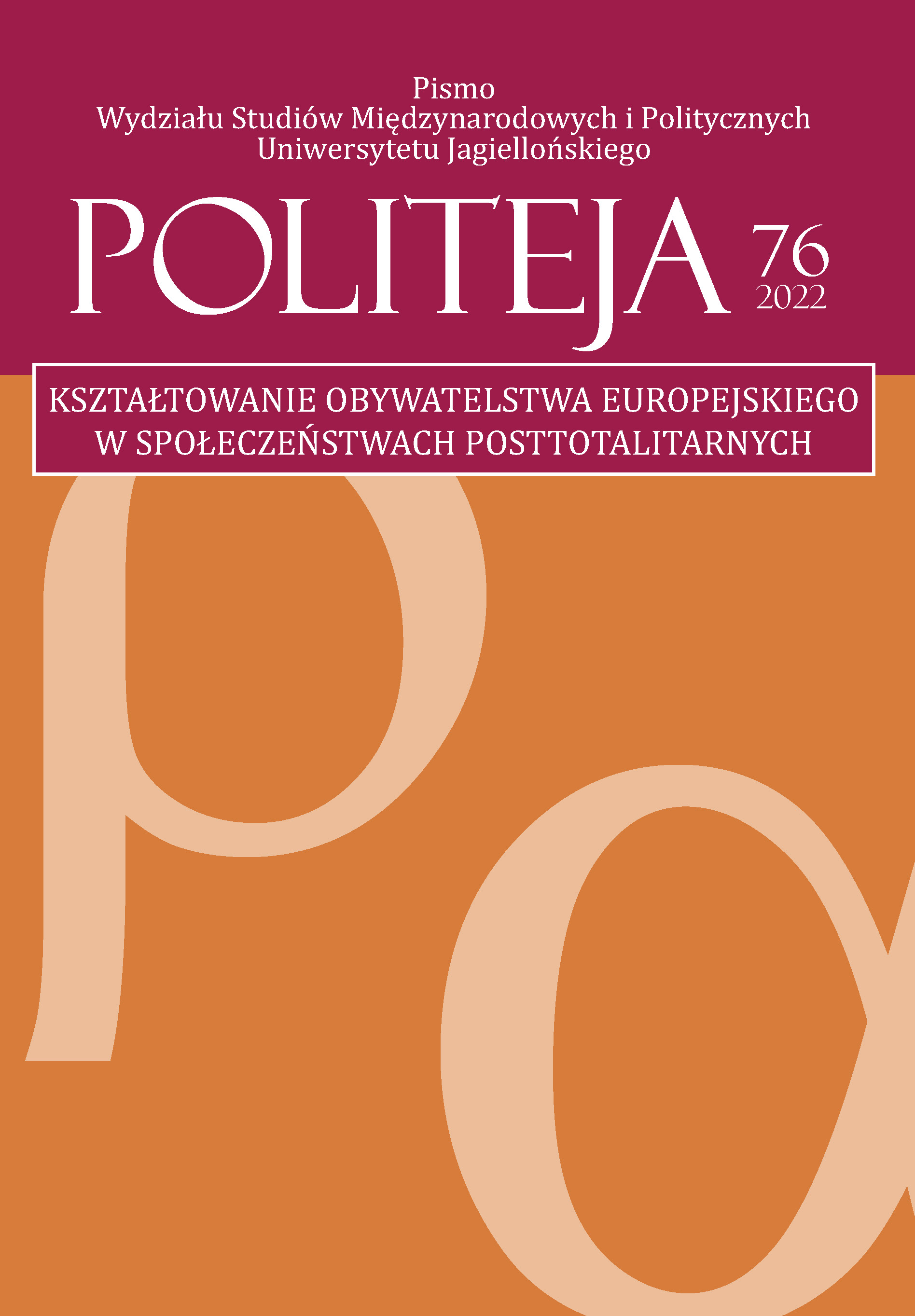Status i funkcje rosyjskiej inteligencji w społeczeństwie posttotalitarnym
Status and Functions of the Russian Intelligentsia in Post-totalitarian Societ
Author(s): Małgorzata AbassySubject(s): History, Post-Communist Transformation
Published by: KSIĘGARNIA AKADEMICKA Sp. z o.o.
Keywords: Russia; intelligentsia; post-totalitarianism; civil society
Summary/Abstract: Transition from totalitarian to post-totalitarian type of society requires profound changes not only within institutional frames but also in the mentality of a society. In the case of Russia it is not the matter of coming back to the civil society mechanisms but creating them from anew, as the kind of citizen – state relations had not been spread to the whole society before the Soviet Union times. Intelligentsia could be an agent of the changes towards post-totalitarian state and social order. In this paper questions about the intelligentsia’s status and role in the Russian society were posed. The idea of civil society coined in the times of the Decembrist was confronted with the mobilized type of governing. Intelligentsia, as perceived by the Russian society and experts on the one hand and its selfportrait on the other hand were discussed. An important question concerned the role of the Russian political opposition as the intelligentsia’s ethos continuation. The conclusions were that the intelligentsia repeats the pattern which was first developed at the beginning of the 19th century: its idealistic members are ready to struggle for the common good but without common social support. The status of intelligentsia is perceived as high if about education and morality, but it diminishes when its leadership is concerned. In the Russian post-totalitarian society the state is still an agent to be followed. It takes Russians towards totalitarianism.
Journal: Politeja - Pismo Wydziału Studiów Międzynarodowych i Politycznych Uniwersytetu Jagiellońskiego
- Issue Year: 19/2022
- Issue No: 76
- Page Range: 63-78
- Page Count: 16
- Language: Polish

